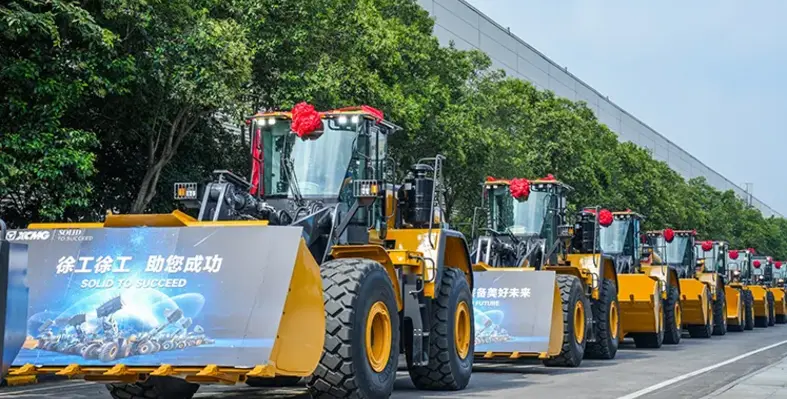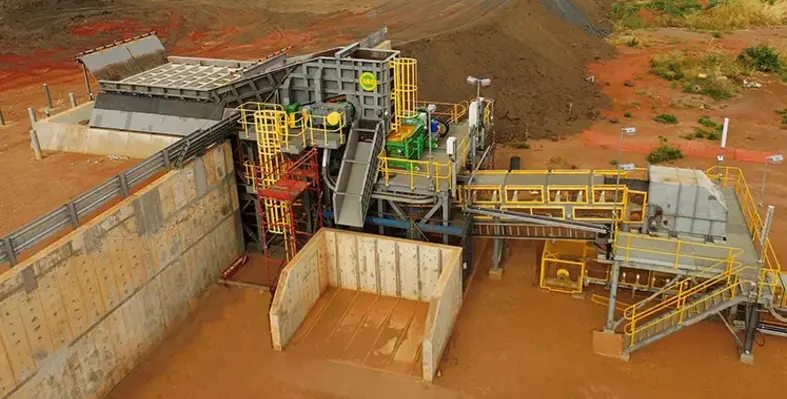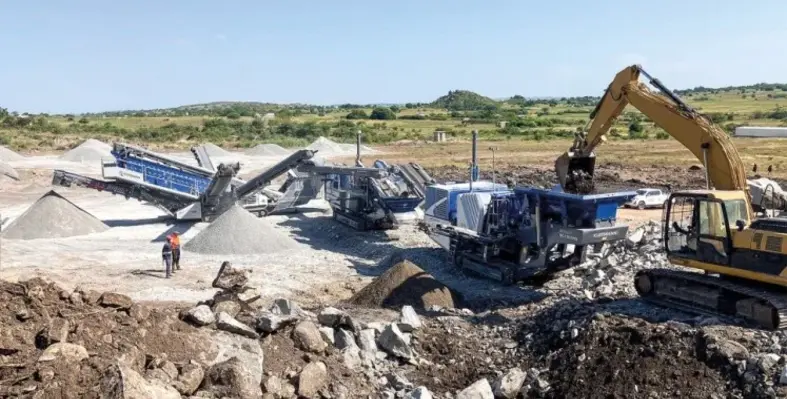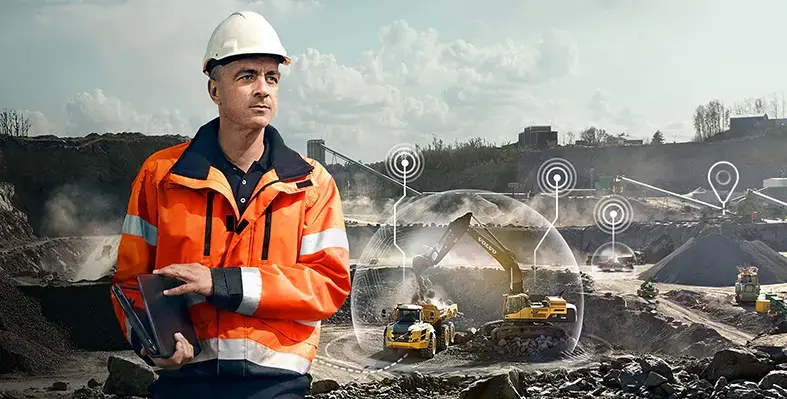
The new report highlights some of the innovations, partnerships and real-world projects that are defining Liebherr’s presence across Africa and the Middle East. (Image source: Liebherr)
Liebherr, in association with African Review and Technical Review Middle East, has launched a new report on Technological Progress in High-Risk Sectors Across Africa and the Middle East
The report examines the dynamic transformation of sectors such as mining, construction, energy, and logistics, which are evolving rapidly to meet rising demands for productivity, operational efficiency, and resilient infrastructure in increasingly complex environments.
Across Africa and the Middle East, businesses face challenges including remote project locations, extreme climates, underdeveloped infrastructure, and fluctuating regulatory and geopolitical conditions. Liebherr’s report highlights how its high-performance machinery, from earthmoving and material handling equipment to mobile and crawler cranes, mining trucks, and deep foundation solutions, is designed to operate reliably and efficiently even in the toughest conditions. The company’s focus on safety, energy efficiency, emissions reduction, and predictive maintenance ensures that clients can optimise performance while reducing operational risks.
Download this exclusive industry report:
-
Gain insights into the latest construction, mining, logistics, and infrastructure developments across Africa and the Middle East, and the trends shaping these high-risk sectors.
-
Access real-world case studies showing how Liebherr’s engineering excellence drives productivity and efficiency in challenging environments, from urban construction sites to remote mining operations.
-
Discover initiatives for workforce development and local capacity building, with training programmes and regional service centres enabling technical self-sufficiency across Africa.
-
Learn how advanced technologies such as telematics, autonomous systems, and intelligent fleet management improve operational visibility and decision-making.
-
Understand sustainability strategies, including fuel-efficient engines, partial electrification, and eco-driving initiatives, helping clients reduce emissions and meet environmental standards.
-
Explore partnership models that enable long-term industrial growth, strengthen supply chains, and foster innovation in both African and Middle Eastern markets.
This report provides valuable guidance for industry leaders, offering practical insights into navigating high-risk sectors with the right tools, technology, and expertise.
Don't miss out! Download the report here.















